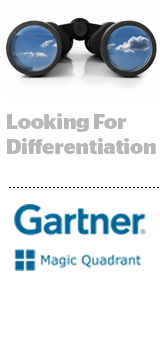
Gartner’s annual digital agency magic quadrant, released last Friday, placed Digitas, AKQA, MRM//McCann, Isobar, SapientRazorfish, R/GA, IBM iX, iCrossing, Ogilvy & Mather, Accenture Interactive and VML as leaders with deep capabilities in business transformation and strategy.
The quadrant ranked agencies with at least $175 million in digital marketing services revenue in 2017, and provide services across business strategy, content development, creative, technology implementation, measurement and analytics.
Accenture Interactive is the only newcomer to the leader’s list this year, and earned its spot after integrating the creative agencies it’s acquired, said Jay Wilson, research director for social marketing at Gartner and author of the report.
“Accenture Interactive in particular has done a good job of maintaining two cultures while integrating creative agencies into its organization,” he said.
Challengers include Havas, Wunderman, PwC Digital Services and Deloitte Digital – a quadrant newcomer.
Like Accenture, Deloitte and PwC are consultancies – but clients told Gartner they haven’t done as well as their digital agency counterparts at integrating creative acquisitions and demonstrating creative thinking. Clients told Gartner that projects with Deloitte Digital in particular left internal teams struggling to “effectively execute and maintain the new initiatives on their own,” a common criticism of consulting firms.
These consultancies – like Havas and Wunderman – are challengers with complete offerings but who don’t execute at the scale of the leaders, Gartner said.
The next category, the visionaries, include Huge and Mirum, a division of WPP’s J. Walter Thompson. They’re strong in UX, performance, creative, search and analytics, but lack the same expertise around business strategy as the leaders.
Finally, niche players include Merkle, Epsilon, Cognizant and Proximity, which have a more limited scope but “excel at their core competency,” according to Gartner’s report.
Procurement keeps agencies from strutting their stuff
Digital agencies can’t differentiate their offerings to clients, Gartner found. Agency inquiries at Gartner increased 23% this year as clients find it difficult to select the right fit.
“Agencies of all sizes are trying to be all things to all people,” Wilson said.
Lack of differentiation is fueled by procurement, which creates rigid processes that force agencies to offer similar responses and fit inside a box, Gartner found.
“Marketers send out procurement-driven RFPs that ask agencies to check off boxes on a laundry list of capabilities,” he said. “They’re doing themselves a disservice. They won’t be able to demonstrate what makes each agency unique.”
As agencies struggle to differentiate and CMOs become more digital and data-savvy, they’re moving toward hybrid models that bring elements of agency work in-house. Just 11% of CMOs said they prefer their agency to direct strategy and execution, favoring a model where the agency fills in gaps on projects, handles executions or isn’t engaged at all, Gartner found.
Still, 90% of CMOs at leading marketing organizations said they will maintain or increase spend with service providers, and that the quality of agency work continues to exceed their own.
“The leading agencies understand that the days of this high volume, continuous churning out of marketing communications are probably gone,” Wilson said. “They’re refocusing creative on things like product and service innovation, where they can continue to bring insights.”
Consultancies are on the rise, just not when it comes to creative
Last year, agencies flaunted their management consulting skills. This year, not so much. It turns out tasks like systems integration – which is the established purview of consultancies like IBM, Accenture, Deloitte and PwC – are really difficult and expensive to do.
“Several agencies we spoke with said, ‘We’re in the marketing communications business, we’re not going to try to play in the consultancy business,’” Wilson said. “Systems integration takes a lot of time and money to be competitive with the PwC’s and Deloitte’s of the world.”
The narrative around agencies vs. consultancies is that agencies execute creative media campaigns, consultancies pull off top-to-bottom business transformation. That remains unchanged.
“The management consultancies creative capabilities are best directed towards big, transformational ideas,” Wilson said. “Product and service innovation aren’t as scalable as agency work in terms of delivering global marketing communications campaigns.”
What keeps agencies from developing the expertise of consultancies? Holding companies propose a compelling set of services across a broad array of resources, but they just can’t seem to pull off strategic business projects.
That’s because holding companies have struggled to combine resources across their networks for clients, Wilson said. There are simply too many stakeholders.
“Holding companies’ resource integration often results in some confusion on the part of clients on who that relationship is really with,” he said.
Not all agencies are hamstrung: Gartner called out Havas (a challenger) and SapientRazorfish (a leader) for being particularly effective putting together integrated services and solutions.
Creative and data aren’t married – they’re not even dating
As much as the industry likes to talk up the marriage of creativity and data, Gartner found that consultancies like Deloitte Digital, Accenture Interactive, Cognizant and PwC Digital Services have strong analytics and transformation capabilities, but can’t integrate creative into their offerings.
Agencies were no better. Those with the strongest creative capabilities – AKQA, Digitas, MRM//McCann, R/GA and Ogilvy & Mather – don’t have as advanced data and analytics as consulting firms and struggle to tie creativity to data the way marketers want, Wilson said.
Many clients work with an agency and a consultancy to balance out those needs.
“The ideal capabilities for a lot of agencies is data-driven creative,” Wilson said, “but nobody seems to be doing both of those things really well at this point.”
This post was syndicated from Ad Exchanger.

More Stories
Casie Mason Joins WFIE in Evansville as AM Anchor
Here’s How Various News Outlets Will Cover Pope Francis’ Funeral
What Media Rights Deals Mean to the Future of Women’s Sports